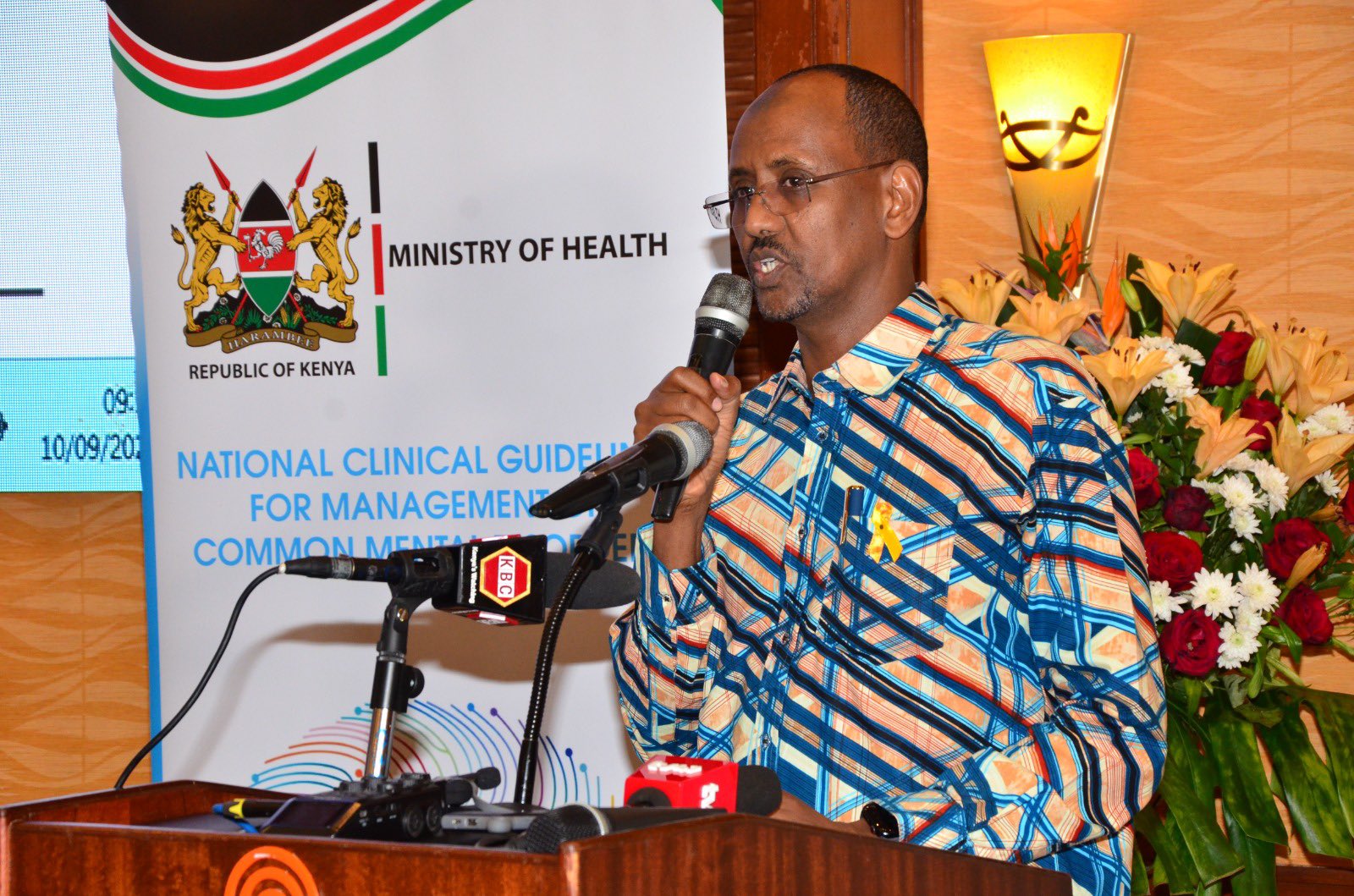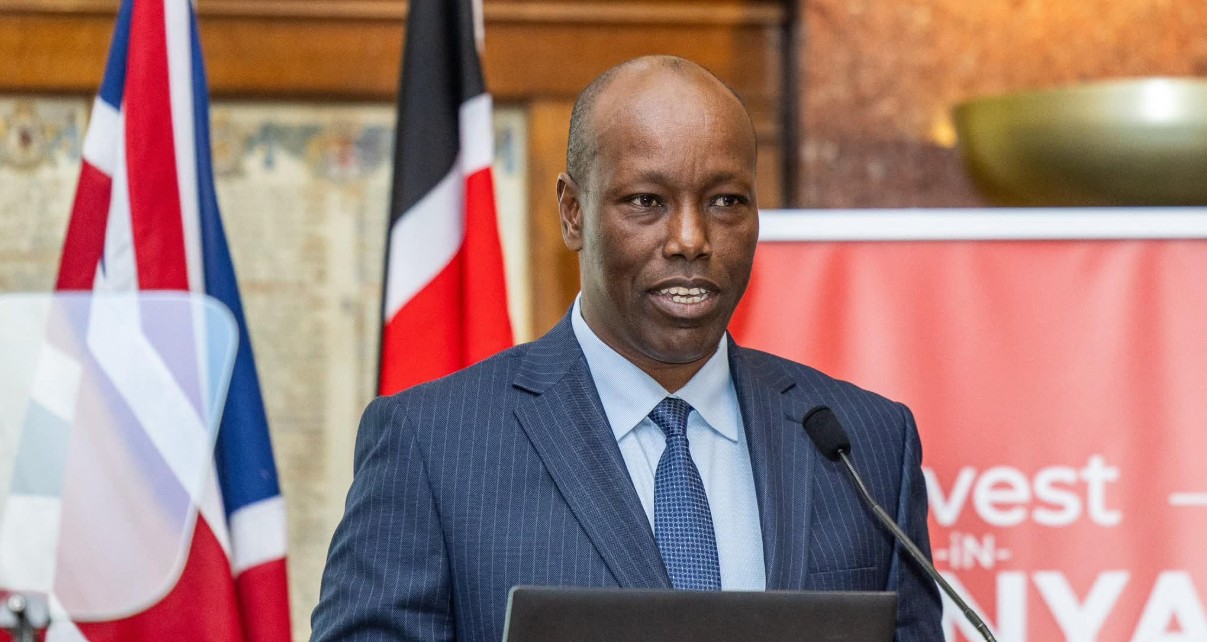MoH unveils guidelines to equip Community Health Workers recognise mental health disorders

In a bid to address the growing mental health crisis in Kenya, the Ministry of Health on Tuesday unveiled new guidelines aimed at equipping community health promoters with the skills to recognise and refer common mental health disorders.
Dr Patrick Amoth, the Director General for Health, while highlighting the urgent need for these measures noted that a significant percentage of Kenyans visiting primary health facilities exhibit symptoms of severe depression.
More To Read
- Extreme weather affects mental health: what vulnerable women in Kenya told us
- Lamu men's crisis: Calls grow for rescue centre to address rising suicide cases
- The hidden toll on mental well-being of individuals struggling with anxiety
- "Storytelling By The Fireside": How art is being used to tackle societal issues in Mombasa
- 1 in 7 children and teens impacted by mental health conditions - UN report
- Youth mental health declared a global crisis amid rising demand for care
"Evidence shows 42 per cent of Kenyans seeking care in primary health facilities have symptoms of severe depression," he said.
A recent study in Nandi County revealed that nearly half of the population has experienced at least one mental disorder in their lifetime, with depression and anxiety being the most prevalent.
"At the county level, a study done in Nandi County found close to half of the population was living with at least one mental disorder in their lifetime with rates highest for depression and anxiety," Amoth added.
Depression often manifests through episodes of sadness, emptiness, or hopelessness, with some individuals displaying irritability or frustration over minor issues.
Despite the high incidence of mental health issues, many remain undiagnosed.
The DG further pointed out that the overall prevalence of mental illnesses stands at 10 per cent, with a notable gap in mental health literacy among primary health care workers.
"There are low rates of mental health literacy among primary health care workers with routine diagnosis of psychiatric morbidity remaining poor thus resulting in most mental disorders being undiagnosed," Amoth said.
The newly introduced National Clinical Guidelines for Management of Common Mental Disorders aim to address this gap.
Mental disorders
The guidelines cover 11 prevalent mental disorders in Kenya, including schizophrenia, depression, bipolar disorder, anxiety, post-traumatic stress disorders, Alzheimer's disease, and neurodevelopmental disorders.
They also address somatic symptom disorders, sleep-wake disorders, psychiatric emergencies like suicide, and maternal mental illnesses.
 The Ministry of Health unveiled Kenya’s first Clinical Guidelines for Managing Common Mental Disorders on September 10, 2024 in Nairobi. (Photo: MoH)
The Ministry of Health unveiled Kenya’s first Clinical Guidelines for Managing Common Mental Disorders on September 10, 2024 in Nairobi. (Photo: MoH)
"The goal is to improve the identification and treatment of mental disorders, even at the community level by healthcare workers without specialized psychiatric training," Amoth explained.
The guidelines are expected to enhance early detection and support, potentially reducing the suicide rate in Kenya, where approximately four people take their lives daily.
Dr Julius Ogato, CEO of Mathari National Teaching and Referral Hospital who attended the launch emphasised the need for increased funding to access newer medications.
"We are still treating people with molecules developed in the 1970s because there is little funding to buy new drugs," he said.
The 2020 report on mental health highlighted Nairobi and Central regions as having the highest number of mental illness cases.
It revealed that Nairobi has the highest burden due to substance use disorders, with 1,157 out of every 100,000 people affected. Other regions with high prevalence include Kiambu, Kirinyaga, Mombasa, Nyeri, Murang'a, Taita Taveta, and Embu.
"Prevalence rate of common mental illnesses showed 10.8 per cent prevalence of common mental disorders in the general population with 6.1 per cent due to depression and anxiety," reads the report in part
Last year in October, Medical Services PS Harry Kimtai noted that mental illnesses in the country were a significant cause of morbidity, with an estimated 25 per cent of outpatients and up to 40 per cent of in-patients suffering from mental conditions.
"This situation is compounded by the pervasive culture of denial, silence and stigma that surrounds mental health," he said then.
"Many of us erroneously ascribe mental illness to curses, evil spirits, or witchcraft. Persons with mental illnesses are often ostracised, stereotyped, feared, or shunned by society," the PS added.
Kenya is in the process of implementing WHO Quality Rights initiative as part of reorienting the country's mental health services by adopting a human rights-based approach.
WHO's Quality Rights initiative aims to improve the quality of care in mental health and related services and to promote the rights of people with psychosocial, intellectual and cognitive disabilities.
Top Stories Today














































